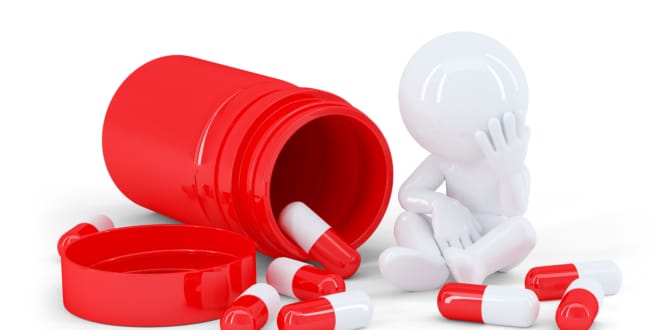When I was first diagnosed with bipolar disorder, no one really explained what that exactly meant for me and what was to come.
I always remember having extreme emotional swings, constant up-and-down battles, but I always assumed that maybe I just felt things more deeply. No one explained that I was destructive to everything and everybody around me when I had an “episode”.
I was almost oblivious to it. I was completely unaware that I was putting immense amounts of stress on everyone when I would go through manic spells or depression. I was prescribed medicine to control my bipolar disorder, but I never took it because I believed nothing was wrong with me.
That’s the thing about mental health problems: it is difficult to force treatment on someone who doesn’t want it or doesn’t think they need it—unless and until they pose a clear danger to themselves or others—as it should be. I continued to sweep my problems under the rug.
I began drinking heavily and doing drugs because it seemed to make everything so much better. Why would I stop doing something that I thought was helping me and everyone around me?
Once again, I was wrong. I was hurting the people around me, but I never saw it. Finally, I reached a point where I was forced to receive treatment for my addictions and my bipolar disorder.
Understanding Bipolar Disorder
Mania or a manic episode is a period of abnormally elevated mood. It is when you are feeling so happy and full of energy that you can hardly get a task done. It was as if I would be so happy and so unhappy at the same time that I felt as if I could jump out of my skin.
During the depressive episodes, I would feel so sad all I would want to do is lay in bed and be alone. I felt hopeless and it was as if I had no energy at all. These episodes would come sporadically throughout my days and that is when I began my road to addiction.
Mixing my disorder with drugs and alcohol seemed to make everything easier, but in fact, it heightened all of my bipolar disorder symptoms. My family and friends all did what they could to help me, but I still did not see a problem with what I was doing.
After not accepting help for a while, my bipolar disorder and drug habits got so out of control, that I began to finally understand. This is when I finally accepted help and got the advice I needed to control my bipolar disorder.
Getting the Help You Need
Holistic rehab was the treatment option I decided would be best for me, and it was the best decision I have ever made. This rehab option is not as common as traditional options—such as the 12-Step Program—but offers many new approaches that can be just as effective.
Holistic rehab tends to focus more on the person as a whole, instead of the treatment of just addiction, which is why I chose it. I have a dual diagnosis, which means I have a mental illness along with addiction. I felt the holistic rehab would be best because it focuses on healing the entire body.
Holistic rehab offers different therapy approaches such as yoga, meditation, acupuncture, and other therapies that are supposed to help you manage stress. When I first went to rehab, I did have to go through the detoxing process, which was quite possibly the hardest thing I have ever done.
When you have an addiction, your body becomes mentally and physically dependent on whatever you may be abusing. To overcome this dependence, you have to abstain from drugs until they leave your body. During this detox, you spend your days not being able to have the one thing you want—what your body has come to need— experiencing sickness, migraines, and suicidal thoughts.
This is how my long journey with holistic rehab began, but those days of being at my lowest truly showed me why I needed to be here.
My treatment facility turned into my new home and I dreaded the day that I would be finished with it and would have to leave.
In holistic rehab, you are surrounded by people struggling with the same things you are. I never had to worry about whether I would be accepted because everyone was just like me. They needed help and they had to reach the lowest points of their lives before they were willing to receive it.
I got the medication and advice I needed to control my bipolar episodes, mania, and depression. I got the treatment and therapy I needed to control my substance abuse.
Holistic rehab also gave me an aftercare treatment plan, which showed me how I could continue my rehabilitation once I left. This plan showed me how to avoid relapsing by finding hobbies, having a job, and surrounding myself with people who supported my decision to be sober.
Through all of the mania, depression, addiction, and rehab, my journey has made me into the person I am today who is living a happy, healthy life. I no longer have the highest highs and the lowest lows, but I am able to do and feel things normally.
Author Bio: Patrick Bailey is a professional writer mainly in the fields of mental health, addiction, and living in recovery. He attempts to stay on top of the latest news in the addiction and the mental health world and enjoy writing about these topics to break the stigma associated with them. Patrick is currently a writer for Mountain Springs Recovery as well as on his own blog.
Liked this article? Share it to say “thanks!” Your support is much appreciated!







